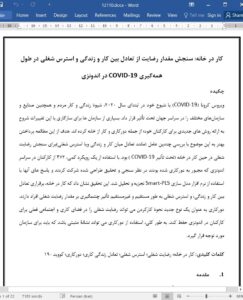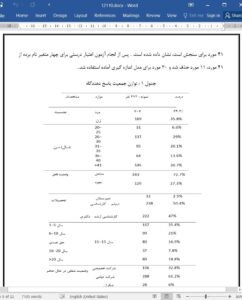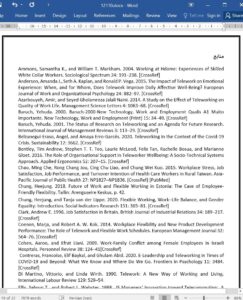Abstract
Coronavirus (COVID-19), which hit in early 2020, changed the way people live and work, and affected industries and organizations all over the world. Many organizations have begun to deliver a new way of working to adapt to these shifts effectively using teleworking or a work from home policy. The purpose of this study was to fill the gaps by investigating several potential predictors of job satisfaction during working from home from the impact of COVID-19 such as work–life balance and work stress. Using a quantitative approach, 472 workers who were forced to work from home all over Indonesia participated, and the responses were analyzed using Smart-PLS software. The study revealed that working from home, work–life balance, and work stress have a significant effect, both directly and indirectly, on job satisfaction. Working from home as a new pace of work can sustain job satisfaction as the current working atmosphere for Indonesian workers. In response to the collectivist setting, working from home can be a positive sign that needs to be paid attention to for the organization.
1. Introduction
In early 2020, the impact of coronavirus (COVID-19) spread that affected all over the world created economic and social shock, which specifically in the organization world will likely reshape the way people live and work and the way in which industries and organizations operate. One of the most observable changes as a result of the COVID19 pandemic is teleworking, telecommuting, or the working from home policy across occupations (Kramer and Kramer 2020). Teleworking was suggested by the World Health Organization to be implemented by governments and organizations around the world as a new work innovation to prevent the spread of the virus as well as a solution so that work can be performed as usual. This refers to a flexible working approach not constrained by time, place, type of technical communication, and the use of information.
6. Conclusions
This study initially focused on seeking the determinant of work–life balance in the early pandemic wherein the unclear direction of working from home in Indonesia was not regulated well, neither from the government nor the policy itself within the organization. The work–life balance concept is rarely discussed in the collectivist setting. In this study, as the workers became close with their family, the concept of work life balance was received as a positive sign, which in some areas could increase their job satisfaction, while in the other side, work stress needs to be paid attention to. Work stress can affect job satisfaction in a normal work setting; however, in this study, where workers were forced to work from home, work stress had a negative impact on job satisfaction. This study sheds light on the fact that even though it is uncommon for Indonesian workers to work in the telecommuting setting, hopes for increasing productivity are still open when it is accompanied by the right policy. The study reveals that working from home as the new climate of working for Indonesian workers can maintain their job satisfaction, and it is expected that they commit to their work and fulfill their task accomplishment.










